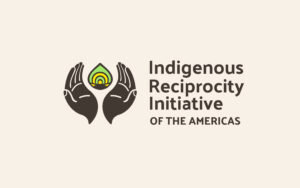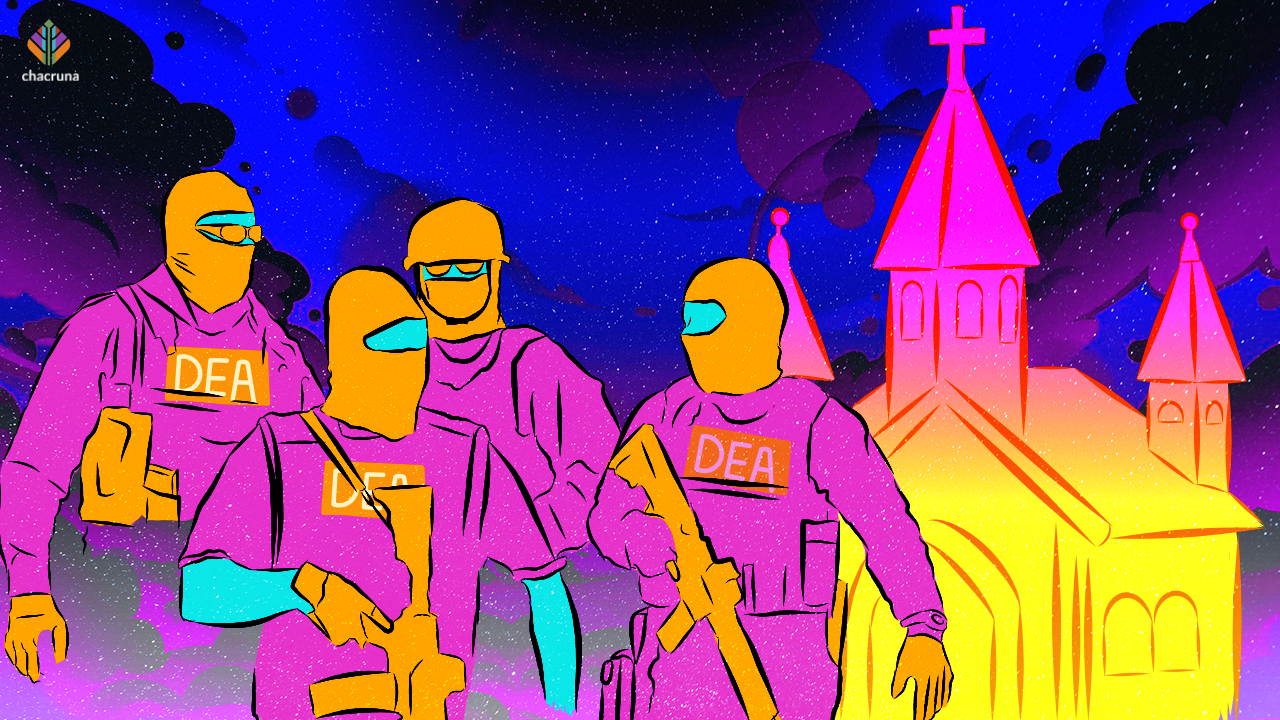- DEA Under Fire: Inefficiency or Resistance? - January 23, 2025
- Where Is the Psychedelic Movement Headed Next? - October 15, 2024
- Is Mainstreaming Psychedelics a Good Thing? - June 7, 2024
In May 2024, the U.S. Government Accountability Office (GAO) published a public report for the congressional committees of U.S. Congress, titled “Drug Control: DEA Should Improve its Religious Exemptions Petition Process for Psilocybin (Mushrooms) and Other Controlled Substances.” This report analyzed the Drug Enforcement Administration’s existing process that allows petitions for religious-based exemptions from the Controlled Substances Act (CSA) for use of psychedelic substances for religious purposes. The GAO’s conclusion sheds light on significant barriers faced by religious organizations seeking legal access to psilocybin and other controlled substances for spiritual practices entitled to protection under the Religious Freedom Restoration Act (RFRA). Its findings raise important questions about the transparency, efficiency, and fairness of the DEA’s processes in evaluating such petitions.
The DEA’s Religious Exemption Process
The GAO report explored the DEA’s religious exemption petition process and highlighted the challenges petitioners face in navigating it. According to the report, the GAO analyzed data from DEA regarding enforcement and religious exemption processes, and interviewed officials at professional associations, DEA and FDA. Additionally, the GAO consulted with legal experts, research institutions, and representatives from states that have legalized frameworks for psilocybin use (Oregon and Colorado).
The GAO report explored the DEA’s religious exemption petition process and highlighted the challenges petitioners face in navigating it.
The DEA’s process for reviewing religious exemption petitions involves examining several factors, including the nature of the religion—encompassing its history, belief system, structure, practices, membership policies, rituals, holidays, and leadership—and specific religious practices involving the manufacture, distribution, importation, exportation, use, or possession of a controlled substance. Petitioners must also provide detailed information about the substance involved in their religious exercise, such as its type, quantity, and conditions of use.
This process is both comprehensive and opaque. While the DEA claims to use objective criteria, the lack of clarity surrounding the actual criteria and its methods of evaluation has raised concerns among petitioners and legal experts. The ambiguity creates barriers for petitioners, particularly those with non-Western traditions who may not align with conventional definitions of religion.

Discover the Indigenous Reciprocity Initiative of the Americas
Transparency and Clarity Issues
Despite the proclaimed detail of criteria in the DEA’s petition process, the GAO report identified significant shortcomings in the DEA’s procedures, creating obstacles for petitioners seeking exemptions under the RFRA. One of the central critiques is the lack of transparency and clear guidance in the DEA’s religious exemption process. While the agency requires petitioners to provide extensive documentation about their religious belief systems, structures, and practices, it does not specify what constitutes sufficient evidence of religious sincerity. For instance, as one legal advocate noted, it was unclear how much and what type of information DEA would consider to be proof of religious sincerity (GAO 2024, p. 37). This leaves petitioners uncertain about how to fulfill the requirements. According to the report, “The DEA guidance requires petitioners to provide documentation on a belief system, structure, and practice, but the guidance does not explicitly state what type of documentation would sufficiently address this requirement” (GAO 2024, p. 37-38).
The ambiguity surrounding “religious sincerity” assessments is particularly troubling. The concept itself is inherently subjective, and the lack of specific criteria opens the door to inconsistent and discriminatory evaluations. This issue is compounded by the fact that the DEA does not disclose the qualifications or expertise of those tasked with making these determinations. Critics argue that the agency’s lack of cultural competency may disadvantage groups practicing Indigenous or non-mainstream spiritual traditions. For example, many of these groups use psilocybin and other controlled substances as sacraments, a practice that may not fit neatly into the DEA’s understanding of organized religion.
The DEA’s exemption process has also faced severe criticism for endangering religious practitioners by compelling them to disclose illegal activities without protection, requiring them to halt their practices while awaiting a response, and denying nearly all petitions. Victoria Litman (2023), in her article “Psychedelics, the DEA, and Regulating Religion,” argues that this process is inherently punitive and constitutionally flawed. She contends that the requirements not only increase the risk of criminal enforcement but also deter religious communities from applying. She goes beyond, stating that the DEA’s lack of expertise in assessing religious sincerity exacerbates these issues, framing the process as impractical and constitutionally suspect (Litman 2023, p. 9).
Delays and Lack of Communication
The report also criticized the DEA’s prolonged processing times for religious exemption petitions. Between 2016 and early 2024, 24 petitioners sought religious exemptions under the RFRA. None were granted, two were denied, and several petitions remained pending for years. One case had been unresolved for nearly seven years. Such delays discourage petitioners and undermine faith in the DEA’s commitment to upholding religious freedoms.
These delays are not merely bureaucratic inconveniences; they have real-world consequences. Some petitioners reported abandoning their applications due to frustration, while others resorted to legal action to compel the DEA to issue a decision. According to the GAO, the DEA guidance:
[…] does not include information that clearly defines the types of information DEA requires of petitioners to evaluate their religious sincerity, nor the standards or relevant factors that DEA will consider in making a threshold determination on evaluating a petition. This guidance also does not inform petitioners of review processing timeframes for a petition for an exemption from the Controlled Substances Act. In addition, the guidance lacks information for petitioners to be able to inquire about the status of any petitions that have been submitted. (GAO 2024, p.44)
This lack of communication exacerbates the perception that the DEA is indifferent to the concerns of religious groups seeking exemptions.
Balancing Religious Freedom and Drug Control
The GAO report underscores the broader challenges in reconciling religious freedom with drug control policies. Substances like psilocybin and ayahuasca hold profound spiritual significance for many communities, yet their use remains strictly regulated under U.S. law. Psychedelic substances are placed in Schedule I of the CSA, which effectively prohibits use in any context, except authorized clinical studies. The RFRA provides a legal framework for balancing the right to religious exercise with the government’s interests, but the DEA’s current practices fall short of meeting its obligations under the act.
This tension is not new. Legal battles over the religious use of controlled substances date back decades, with landmark cases such as Gonzales v. O Centro Espírita Beneficente União do Vegetal (2006) affirming the right of the church to use ayahuasca pursuant to the RFRA. Despite this U.S. Supreme Court precedent, the DEA’s reluctance to grant exemptions suggests a broader unwillingness to accommodate non-traditional religious practices.
Recommendations for Reform
The GAO made four key recommendations to the DEA to address these issues. It urged the agency to provide explicit guidance on the types of documentation petitioners need to demonstrate religious sincerity and to outline the standards and relevant factors it uses to evaluate petitions. It also called on the DEA to establish clear timelines for reviewing and deciding on religious exemption petitions and to improve communication mechanisms so petitioners can inquire about the status of their applications and receive updates. By implementing these recommendations, the DEA could make its religious exemption process more transparent, efficient, and accessible.
By implementing these recommendations, the DEA could make its religious exemption process more transparent, efficient, and accessible.
Clearer guidelines and better communication would reduce the burden on petitioners and help ensure that religious freedoms are respected. For instance, the establishment of processing timeframes would provide much-needed accountability, ensuring that petitions are not left unresolved for years. Additionally, creating mechanisms for status updates would empower petitioners and foster greater trust in the process. However, there is a bigger issue that remains to be solved regarding the legitimacy and the legality, or lack thereof, of a drug enforcement agency defining what practices constitute a sincere exercise of religion.
Conclusion
The GAO report on the DEA’s religious exemption petition process reveals significant deficiencies in transparency, efficiency, and fairness. By failing to provide clear guidance, establish reasonable timeframes, and communicate effectively with petitioners, the DEA undermines its ability to uphold religious freedoms under the RFRA. Implementing the GAO’s recommendations is essential to address these shortcomings and ensuring that religious practices involving controlled substances are treated with the respect and fairness they deserve and protected under the law.
The GAO report on the DEA’s religious exemption petition process reveals significant deficiencies in transparency, efficiency, and fairness.
As the legal landscape surrounding substances like psilocybin and ayahuasca continues to evolve, the DEA’s role in balancing drug control with religious freedom will remain a critical issue. The agency’s continued refusal to grant exemptions—even after legal losses to religious communities such as União do Vegetal (UDV) and Santo Daime, and its settlement with the Church of the Eagle and the Condor, each of which resulted in a religious-based exemption from the CSA—suggests either inefficiency or a deeper unwillingness to accommodate such practices. This pattern is further evidenced by the questionable content of the 2020 DEA report on ayahuasca, which was heavily criticized by leading experts for its inaccuracies and alarmist tone (Labate et al 2023). Such actions suggest that the DEA still views the religious use of psychedelics as a significant risk to public safety, despite lacking evidence to substantiate its claims.
Ultimately, the paradox of government agencies determining the legitimacy of religious beliefs and practices highlights a fundamental challenge in U.S. drug policy. By setting standards for what constitutes a religion and assessing the sincerity of faith, the DEA wades into deeply subjective and culturally fraught territory. Resolving these issues will require not only procedural reforms but also a broader commitment to respecting the diversity of spiritual practices in a pluralistic society.
Art by Mulinga.

Shop our Collection of Psychedelic T-Shirts
References
Employment Division, Department of Human Resources of Oregon v. Smith, 494 U.S. 872 (1990).
Labate, B., Ermakova, A. O., Sloshower, J., Galvão-Coelho, N., Palhano-Fontes, F., Antunes, H. F., Loures de Assis, G., Cavnar, C., de Araújo, D., & Ribeiro, S. (2023). The DEA report on ayahuasca risks: “Science” in service of prohibition?. Journal of Psychedelic Studies, 7(2), 81-89. https://doi.org/10.1556/2054.2023.00279
Litman, V. (2023). Psychedelics, the DEA, and regulating religion. Regulation, Spring 2023.
U.S. Government Accountability Office. (2024). Drug control: DEA should improve its religious exemptions petition process for psilocybin (mushrooms) and other controlled substances. Washington, D.C.: Government Accountability Office.
Take a minute to browse our stock:
Did you enjoy reading this article?
Please support Chacruna's work by donating to us. We are an independent organization and we offer free education and advocacy for psychedelic plant medicines. We are a team of dedicated volunteers!
Can you help Chacruna advance cultural understanding around these substances?














